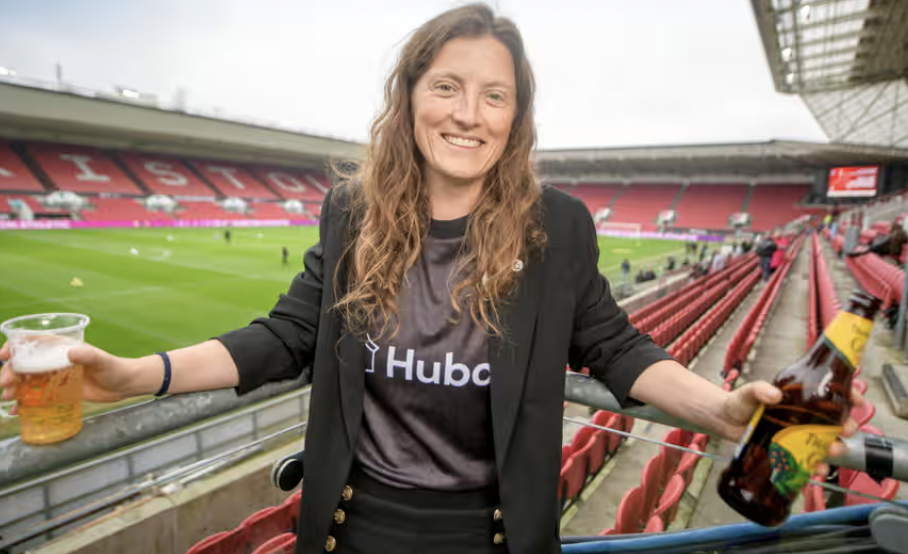January 22 – Last week it was announced that alcohol would be allowed in view of the pitch at an English football stadium. This pilot scheme, which is being conducted at Bristol City, Southampton, Birmingham and Newcastle is being carried out across the clubs’ remaining home league games of the season with some derby fixtures exempt, however, it is limited to the women’s game.
Drinking in view of the pitch is still banned in the top five mens leagues courtesy of the Sporting Events Act of 1985 but on Saturday, alcohol was freely served at Ashton Gate, the home of Bristol City.
Andy Payne, a season‑ticket holder, told The Guardian: “In women’s football there is no tribalism like there is in the men’s game, it’s a lot easier to police something like that.
“There are less people in the stands as well. It’s not like anyone is coming here to get drunk, we’re coming here to watch football. It’s a good thing, I think it’s really positive. I hope it is a success. It works in rugby so there is no reason it shouldn’t work in [women’s] football.”
Not all supporters were in alignment with Payne though as Sue Kitchen who supports the London City Lionesses, Bristol’s opponents said: “You get people getting up in front of you. We go to cricket as well and that’s the problem, people get up and go to the bar. It seems a little bit forced, I’m not sure [about it].”
Romaney Pinnock (pictured), head of women’s football for The Robin’s does see the benefits of giving fans choices saying: “We want to give fans the choice to consume what they want in a healthy, safe way. We are used to it with the rugby [Bristol City’s home ground Ashton Gate is also Bristol Bears’ stadium], they can come here and choose to drink or not.
“It’s more about us saying: ‘What is your match-day experience going to be while you’re here?’ The benefit is more for our fans than for us. I don’t think there will be a massive surge in revenue from alcohol but more the case of our fans being able to say: ‘Oh that’s nice, I can have a beer.’ I don’t think we can shy away from revenue when you are selling more products but I think we are leaning towards [fans] having choice.”
The banning of alcohol was spurred by fan violence, however much has changed in the demographics of fans over the last 40 years and should the pilot programme prove successful, it wouldn’t be a surprise to see the Premier League petition the English government for change.
Contact the writer of this story, Nick Webster, at moc.l1751737283labto1751737283ofdlr1751737283owedi1751737283sni@o1751737283fni1751737283

